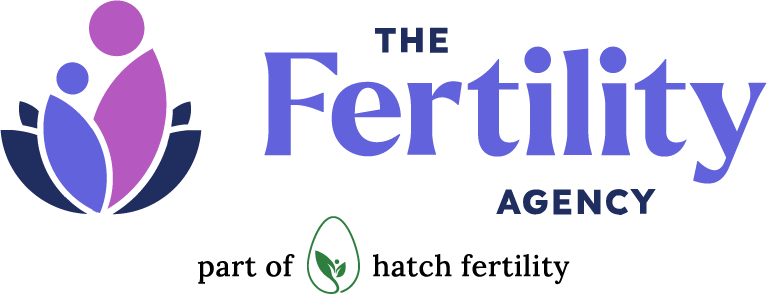Gestational surrogacy relies on donated eggs to make a family’s dreams come true. That’s one of the reasons we’re committed to helping couples and individuals build families through the incredible gift of egg donation.
Our egg donation program involves generous women contributing their eggs to help others achieve their dreams of parenthood. Ensuring the health and well-being of our egg donors is crucial because it directly impacts the quality of the eggs donated. We are serious about our egg donor requirements for a reason — they directly contribute to the success of the gestational surrogacy process.
So, what are these important egg donor health requirements, and why do they matter? Let’s take a look.
Age Range: 18 to 30 Years Old
Egg donors who are between the ages of 18 to 30 are ideal due to the optimal egg quality associated with this age range. Aging affects all aspects of our bodies, and the reproductive system is no exception. As women age, their egg quantity and quality decline. Natural aging impacts the health and viability of a woman’s eggs.
While we prioritize donors within this age bracket, we also consider other cases. If a donor is over 30, we may take into account their previous success as an egg donor or unique qualifications that contribute to their egg quality.
Healthy BMI and Height/Weight Ratio
Maintaining a healthy body mass index (BMI) and a balanced height/weight ratio is essential for egg donors. A healthy BMI indicates overall well-being and contributes to reproductive health. A well-balanced height/weight ratio ensures that the donor’s body is in optimal condition for the egg donation process.
If you’re unsure about your BMI, you can use this calculator from the U.S. Centers for Disease Control (CDC).
Regular Menstrual Cycles
When egg donors have consistent and predictable menstrual cycles, it usually means their hormonal balance is well-maintained. This is an encouraging sign that their reproductive system is operating as it should, increasing the likelihood of successful egg retrieval and high-quality eggs for donation.
On the other hand, irregular menstrual cycles can indicate underlying health concerns that might affect the egg donation process. Having an irregular cycle could mean your period varies in length, timing of ovulation, and flow patterns. These variations can be caused by a number of issues, including:
- Hormonal imbalances
- Stress and lifestyle factors
- Endometriosis
- Fibroids
- Pelvic inflammatory disease
Not Pregnant or Breastfeeding
Pregnancy and breastfeeding can affect hormone levels and egg quality. Egg donors should not be pregnant or breastfeeding during the donation process to ensure the eggs are of the highest quality.
Physical Health and Non-Smoking
Physical health is a fundamental requirement for egg donors. A healthy body contributes to healthy eggs. Not smoking is crucial because smoking has been linked to decreased fertility and poorer egg quality. Donors who are non-smokers have a higher chance of producing eggs that are optimal for fertilization.
It’s also important for non-smoking egg donors to avoid being around others who smoke. One study found that secondhand smoke (or passive smoking) reduced the number of eggs retrieved in an IVF cycle by 46%
No Current Use of Psychoactive Drugs or Nicotine
Psychoactive drugs and nicotine can interfere with the complex hormonal balance required for optimal egg development and ovulation. These substances impact the way the body’s endocrine system works, and it plays a critical role in preparing eggs for fertilization. Avoiding these substances ensures that the egg donor’s body is in its natural and healthiest state for the procedure.
Little to No Alcohol Use
While some alcohol use is generally acceptable, too much alcohol consumption can affect egg quality and hormonal balance. Moderation is key, and egg donors should be willing to maintain a balanced approach to alcohol consumption.
No Significant Psychiatric Disorders
Egg donors should not have significant psychiatric disorders among themselves or close family members. Mental health plays an important role in overall well-being, and maintaining stability is crucial during the egg donation process.
No Family History of Serious Inheritable Genetic Disorders
As a fertility clinic, we want to make sure our intended parents have access to the healthiest eggs possible. Family history of serious inheritable genetic disorders can impact the genetic quality of the eggs. Avoiding donors with such family histories helps us ensure that the donated eggs have the best chance of becoming healthy offspring.
The end goal of the surrogacy process is a healthy baby. We follow the health requirements for egg donors to ensure the highest quality eggs, which will increase the chances of a baby born with no health concerns. Maintaining physical, mental, and emotional health contributes to successful egg retrieval and, ultimately, successful pregnancies.
If you’re considering becoming an egg donor, learn more about the process.
Egg Donor and Surrogacy Services
Since 2004, The Fertility Agency has helped bring over 1100+ babies into the world. We work with all intended parents, surrogates, and egg donors no matter their sexual preference, relationship status, ethnicity, location, etc. Our personal experiences and years of expertise provide us with the perfect balance of business and passion.

